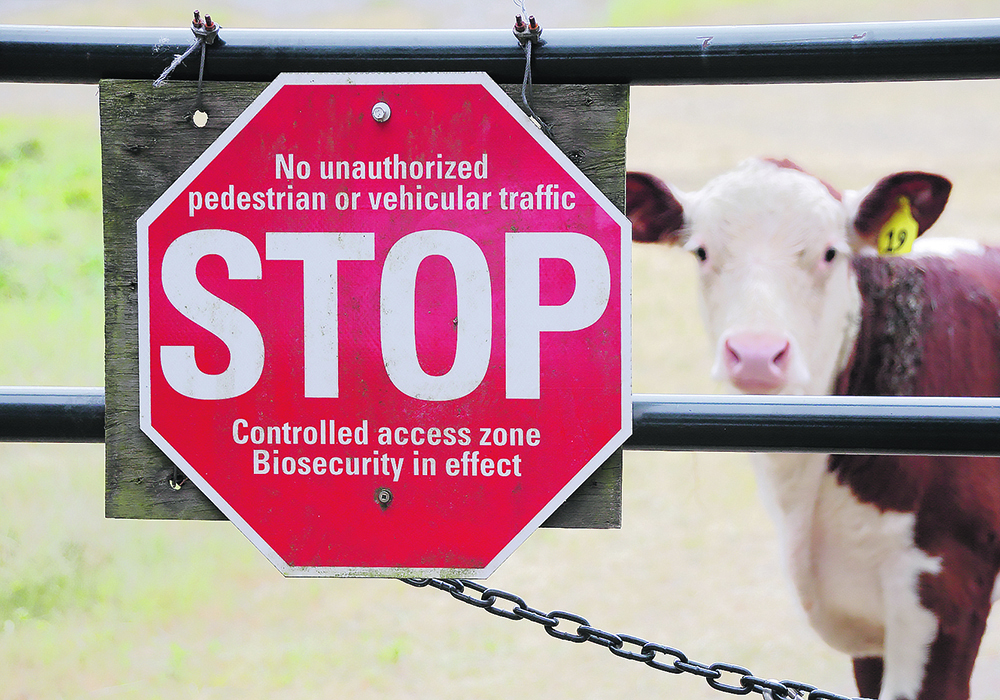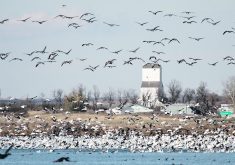If passed as amended, Bill C-275 would no longer apply only to trespassers but also to anyone entering a livestock facility
UPDATED – October 30, 2024 – 1500 hrs CST – REGINA — Alberta Conservative MP John Barlow said the essence of his biosecurity bill remains even though a Senate committee amended it last week.
The Senate agriculture committee changed Bill C-275 during clause-by-clause consideration to apply to anyone entering a barn or livestock facility rather than just those who don’t have permission to be there.
However, the increased fines it includes are still intact, and Barlow said that’s what he was trying to accomplish.
Read Also

Canada told trade crisis solutions in its hands
Canadians and Canadian exporters need to accept that the old rules of trade are over, and open access to the U.S. market may also be over, says the chief financial correspondent for CTV News.
The bill now goes to the Senate floor for another vote and could be amended again.
In an interview, Barlow said it’s clear animal activists had the committee’s ear.
“They weren’t asking questions on behalf of farmers and producers. They were only asking the same question over and over and over again about expanding the scope of the bill to include anyone on farm,” he said.
Only activists who appeared at committee had asked for that, Barlow said.
“What the Senate has clearly done is try to delay this and make sure that it doesn’t pass,” he said.
The amendment came from the same senator who introduced changes to Bill C-234, which is legislation that would have expanded farm exemptions to the carbon tax.
Senator Pierre Dalphond, a member of the Progressive Senate Group, said he proposed the changes based on two concerns the committee heard.
“The first concern was that compliance may be exceeding federal jurisdiction,” he said, noting the bill might be more about trespass than biosecurity.
The second was that no one could confirm trespassers had caused disease to spread on farms. Dalphond cited a brief from 20 infectious disease specialists that said the disease risk is greater from farm workers than trespassers.
“The amendment will make sure that everybody who is on a farm and enters a building or an enclosed place will have to conduct themselves with the same behaviour and that the owners of the farm will have to make sure that everybody is complying with the protocols and practices on the farm,” he said.
The leader of the opposition in the Senate, senator Don Plett, opposed the amendment, saying it was unnecessary and harmful.
Plett said 133 government MPs voted in favour of the bill, along with 112 Conservatives, 30 Bloc Quebecois members, 21 New Democrats, three independents and two Green party members.
“This was passed by all people who are concerned about farming and has been opposed by all people who are animal activists,” he said.
In a message sent to its supporters Animal Justice called the amendment a victory.
The organization noted it previously defeated an earlier version of the bill, C-205, and successfully launched a constitutional challenge of Ontario’s law.
Plett said C-275 is likely to die on the order paper.
Barlow said it’s possible the bill could survive, but the longer it’s delayed, “who knows how much runway we have left.”
The Bloc Quebecois had given prime minister Justin Trudeau until Oct. 29 to meet conditions of its support and prevent an early election. That includes passing Bill C-282, the bill that would protect supply management in future trade negotiations.


















